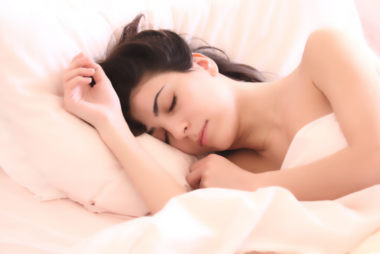Do you have insomnia? Do you struggle to sleep at night, wake up frequently during the night or do you anxiously watch the clock until the time you have to get up?
 Temporary insomnia can simply be because of jet lag or not being tired enough. However long-term insomnia could be due to psychological problems such as anxiety, depression, chronic stress, bipolar disorder or trauma. In some instances, it could even be sleep disorders that are causing insomnia: conditions such as sleep apnoea (shallow or infrequent breathing), narcolepsy (brain’s inability to keep sleep-wake cycles normal), or restless legs syndrome (irresistible urge to move one’s body).
Temporary insomnia can simply be because of jet lag or not being tired enough. However long-term insomnia could be due to psychological problems such as anxiety, depression, chronic stress, bipolar disorder or trauma. In some instances, it could even be sleep disorders that are causing insomnia: conditions such as sleep apnoea (shallow or infrequent breathing), narcolepsy (brain’s inability to keep sleep-wake cycles normal), or restless legs syndrome (irresistible urge to move one’s body).
It may sound obvious but avoid naps, reduce caffeine intake, try to keep to regular sleep patterns, sleep in a quiet environment, avoid exercising within four hours of bedtime, avoid eating a late heavy meal and try relaxing – perhaps with a regular Ayurvedic head massage. Contact us for your nearest therapist.
If this has not worked then try these ten solutions:
1. Get out of bed to break the cycle – perhaps have a glass of water.
2. Read a book – hopefully not one that is too exciting that you would not want to put down.
3. Watch television.
4. Have a warm bath with relaxing herbs or oils.
5. Do not keep looking at the clock to see when you have to get up – remove the clock from your bedroom.
6. Do not let negative thoughts take over. Consider what good this thought could mean and focus on this. Maybe it is a test from God designed to make you a stronger person? Someone once said ‘God let me not have problems – instead let me be a stronger person’.
7. Simply breathe deeply for five minutes. Yawn to relax the jaw muscles. Roll your head in the circular motion to relax the neck muscles. Roll the shoulders in a circular motion to relax the shoulder muscles.
8. Some oils are relaxing. Place a few drops of any of these to your pillow: Valerian, Lavender, Sandalwood or Clary Sage.
9. Sleeping tablets. Your doctor could give you some as a last resort, for a short period of time. However, doctors are usually reluctant to prescribe sleeping tablets as they do not treat the cause and may cause side effects, such as a feeling of a hangover or daytime drowsiness.
10. Herbs such as Valerian and Ginger. For some people, a natural herbal remedy without side effects is the solution. Herbs such as Valerian and Ginger have been used as a sleeping aid since the times of Alexander the Great. Valerian contains Valerenic acid and Iridoids which act as a mild sedative. Ginger contains Cineole which has a calming effect.
Ravi Bhanot
JP MRPharmS Dip(Nutr) Dip(Hom) Dip(Ayurv) Dip(Stress Manag) Dip (Massage) Pharmacist, Ayurvedic, Complementary Health and Nutrition Consultant, Lecturer, Researcher and Author

